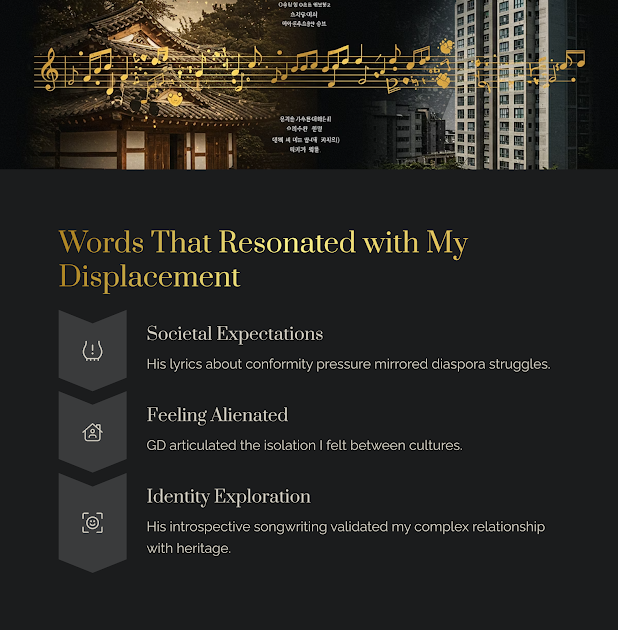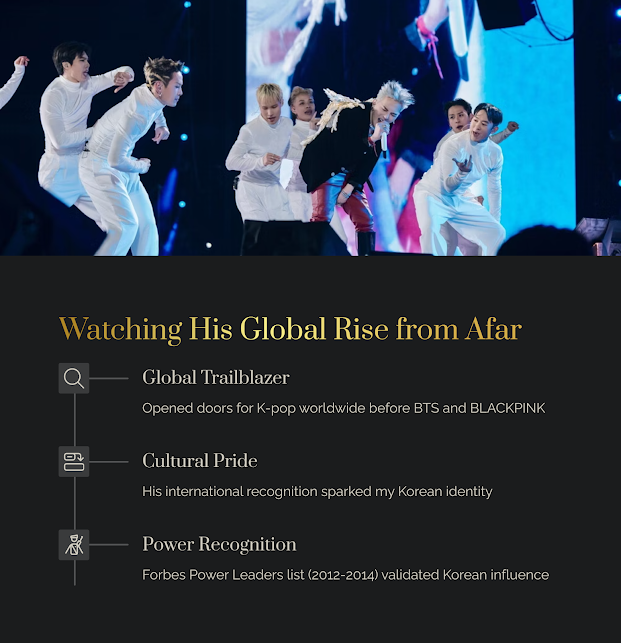Life After the Army – Structure Gone, Identity in Question
Leaving the Army left me with a strange silence.
No uniform. No chain of command.
No clear answer to, “Who am I now?”
As a Korean-American,
I’d always lived between worlds.
And post-service, that feeling only deepened.
I didn’t expect a K-pop artist to help me bridge that gap.
But G-Dragon did.
Hearing G-Dragon for the First Time – Style, Swagger, and Something Deeper
The first G-Dragon song I heard was Crooked.
It wasn’t just catchy—it was real.
Behind the glam and swagger,
there was a voice screaming to be understood.
Angry, playful, lonely, proud.
He wasn’t just performing.
He was translating a very Korean kind of emotional chaos.
And suddenly, I felt it too.
Lyrics That Spoke to Discomfort – Alienation, Pressure, and Pride
Lines like
“Leave me alone, I was alone anyway,”
hit differently when you're navigating life after service,
when identity feels blurry.
G-Dragon’s words mirrored the disorientation I felt
as I tried to reconnect with Korea,
not just through blood—but emotion, memory, and art.
More Than an Idol – The Artist as Cultural Voice
G-Dragon wasn’t just singing.
He was reflecting a generation.
Wearing hanbok onstage.
Blending tradition with rebellion.
Shifting what “being Korean” could mean.
He wasn’t boxed in—
and that gave me permission not to be, either.
Watching From Abroad – Feeling Korean Through His Success
In the States, people didn’t always “get” Korea.
But they noticed G-Dragon.
Through him, I saw Korea as cool, experimental, fearless.
Not just historical, not just tech-savvy—
but alive, in rhythm and color.
For the first time,
being Korean-American didn’t feel like a background story.
It felt like being part of something electric.
Moving to Korea – Realizing His Influence All Around Me
Now that I live in Korea,
I see G-Dragon everywhere—
in fashion, in language, in the way people carry themselves.
He gave a generation a new template for expression.
And quietly,
he gave me one too.
He made Korea feel like a place where I could belong without explanation.
What G-Dragon Represents – Freedom, Fluidity, and Modern Korean Identity
G-Dragon represents what Korea has become—
bold but thoughtful, rooted but evolving, chaotic but creative.
He gave me a version of Korean identity
that didn’t ask me to choose between past and present,
or between America and Korea.
He showed me that identity can be fluid, expressive, and still proudly Korean.
And in doing so,
he helped me find my own way home.








